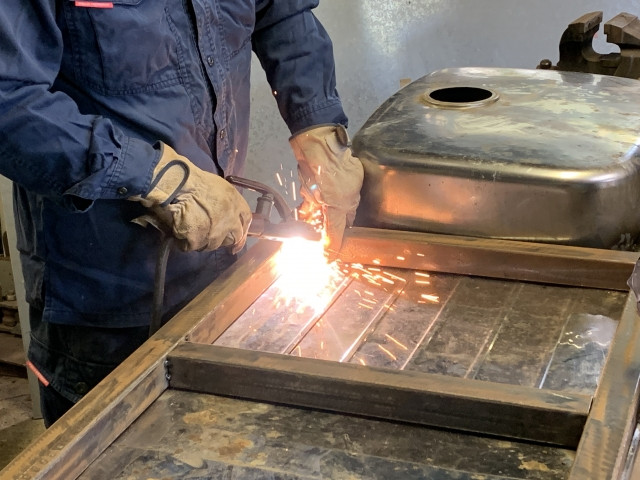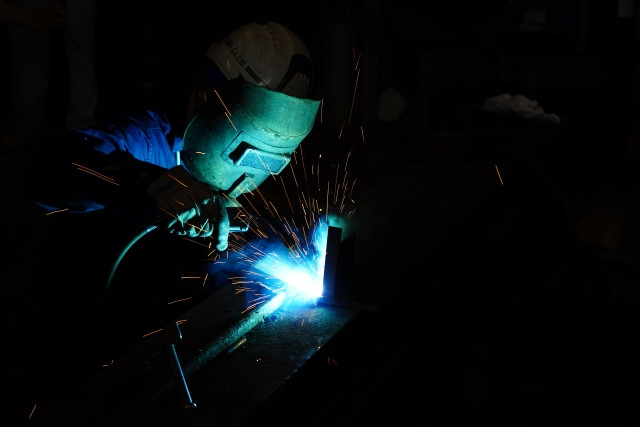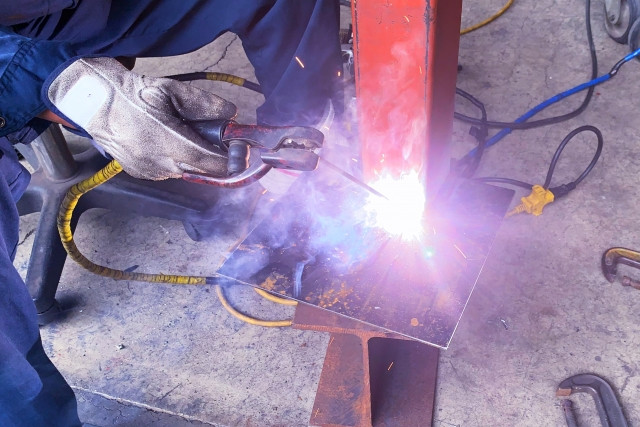Welding in Japan, like in many other countries, is a crucial part of the manufacturing and construction industries. In this article, we introduce how you can become a welder in Japan.
First Published: 2020/05/11
Updated: 2024/05/17
Table of Contents
- Brief Intro to Welding in Japan
- Welding Job Requirements in Japan
- Welding Jobs in Japan
- Welder Salary in Japan
- Looking for a Specific Skills Job in Japan? Leave it to Leverages Global Support
 Are you having any issues with job-hunting in Japan?
Are you having any issues with job-hunting in Japan?
Brief Intro to Welding in Japan

In Japan, welding is a crucial part of the manufacturing and construction industries. Other sectors that require welding prowess include shipbuilding, automobile repair and maintenance, and the aviation industry for aircraft maintenance. Japan is well known for its advanced technology and high-quality standards, and this applies to welding as well.
Unfortunately, like many developed nations, Japan faces challenges in the welding industry. Namely, an aging workforce and a shortage of skilled welders due to lack of younger individuals' interest in pursuing a career in welding. Efforts to resolve this growing problem include looking into alternative methods of welding as opposed to relying on manual welding, and also ways to increase the number of welders. One such way is to bring in foreign skilled welders to work in Japan.
Writer's Pick
Welding Job Requirements in Japan

Want to work as a welder in Japan? Here are the general requirements.
Welding Knowledge and Technical Expertise
In Japan, many welders enter the workforce after completing welding vocational training in high school or having graduated from vocational school with a diploma in welding. This indicates that a high level of education is not required for welding jobs in Japan, as more importantly, you need the relevant knowledge and technical skills related to welding. Is this the same case for foreign nationals? Due to the large demand for welders in Japan, there are also companies that accept applicants with no working experience. Training will be provided, but keep in mind that other requirements such as language proficiency, existing status of residence, etc. is required. In any case, it is a legal requirement that in order to perform arc welding or gas welding, the relevant training courses must be completed.
For more advanced or sophisticated welding jobs, a college diploma or engineering degree may be required of job applicants. Check the job requirements carefully before applying.
Welding Certifications & Qualifications
There are several welding related certifications and qualifications available in Japan. For example, Gas Welding Operations Supervisor (ガス溶接作業主任者) that requires at least 3 years of work experience to get, Welding Technician (溶接作業技能者), Welding Instructor (溶接作業指導者), International Welding certifications, and etc. Welding certifications can be obtained from the Japan Welding Engineering Society (JWS).
Depending on what position you are applying for, the necessary qualifications or certifications may be necessary to obtain. However, if you are planning on being a general welder, then for the most part you will not require any certifications or qualifications. Although, it will be very helpful for getting a welding job in Japan.
Japanese Language Skills
One of the most important skills to have is the ability to speak Japanese. This is essential for speaking to your coworkers and receiving job instructions. Furthermore, there is a high chance that job plans or welding plans will be written in Japanese, so you will need to be able to understand them in order to perform your duties.
Due to the large demand for welders in Japan, there are also companies that are open to hiring welders with daily conversation or intermediate level Japanese (JLPT N4 to N2 level). These companies usually have an international team who will be able to guide you in a language they support. However, you will need to be proficient in the relevant language to be eligible for the position.
Status of Residence
The biggest hurdle to becoming a welder in Japan is the status of residence. Although technically a type of engineer, the Engineer / Specialist in Humanities / International Services (技術・人文知識 ・国際業務) working visa does not apply to fully welding jobs. It only applies if welding duties take up part of your responsibilities, for example a construction engineer or mechanical engineer who also does welding tasks.
The only status of residence available to welders at the moment is the Specified Skilled Worker visa and Technical Intern Training Program visa. More on this below.
Welding Jobs in Japan

How to find welding jobs in Japan? First things first, the Japanese word for “welding” is 溶接 (Yousetsu). To look for welding jobs in Japanese, look up 溶接工 (Yousetsukou), aka “Welder”.
In order to become a welder in Japan, there are 2 main status of residents you can obtain.
Specified Skilled Worker
The Specified Skilled Worker visa was introduced in Japan to address labour shortages in specific industries. There are several eligible industries that require welding expertise:
- Machine Parts and Tooling Industries
- Industrial Machinery Industry
- Electric, Electronics and Information Industries
- Construction Industry
- Shipbuilding and Ship Machinery Industry
- Automobile Repair and Maintenance
- Aviation Industry
Technical Intern Training Programme
The Technical Intern Training Programme was introduced to facilitate the transfer of technical knowledge and skills from experts in Japan to technical interns from developing countries to help these developing countries grow. Welding is counted as one of these technical knowledge and skills that technical interns can learn while in Japan. The relevant industries include:
- Machinery and Metals
- Construction-related
- Production & Manufacturing
International Student Path
There is an option of studying abroad in a Japanese vocational school or Japanese university to acquire the technical skills and knowledge to become a welder in Japan. Although most welding programmes in vocational schools are taught in Japanese, requiring international students to have a good grasp of Japanese (N2 level), there are also English welding courses available. Do look it up if you are interested.
Welder Salary in Japan

The average annual salary for welders depends greatly on the size of the company concerned.
For fresh graduates, the market rate for the initial year is 2 million yen, or 200,000 yen per month. As you work longer and gain more experience on the job, your salary will increase to the range of 3.5 million to 4.5 million yen per year, or 300,000 yen to 375,000 yen per month, for full-time welders.
Looking for a Specific Skills Job in Japan? Leave it to Leverages Global Support

Leverages Global Support is a career support service that introduces jobs that require specific skills to specified skilled workers.
We also help with all the procedures required for employment and job changes, such as change of status of residence (visa type) and interview practice. If you have any problems after starting work, please feel free to contact us as well.
If you would like to know more about specified skilled workers and specific skills, please read this article, or contact a career advisor.
Recommended For
- Specified Skilled Workers who are thinking about changing jobs
- Technical Interns who want to switch to becoming a Specified Skilled Worker (You can try working in a new industry even with no experience!)
- International Students who have graduated from a Japanese school but are having trouble finding a job
How to Use Leverages Global Support
Ask for Job Recommendations
A career advisor will support you with your job search based on your desires. If you would like to be introduced to a specific skill job, feel free to send us a message using the link below.
Mention “WeXpatsを見た” at the beginning of your message, and our staff will respond promptly.
※ A Facebook account is required. Responses will be in Japanese.
Browse Jobs Yourself
You can search for the perfect job by specifying your Japanese level, occupation, work location, etc. We have many jobs available not only for Specified Skilled Workers, but also for Engineer / Specialist in Humanities / International Services.
※ You can register from outside Japan, but only those living in Japan can apply for jobs.





































